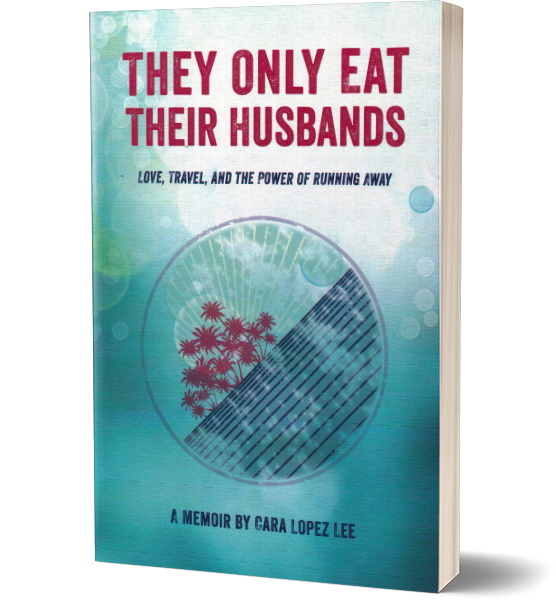 A friend of mine has me thinking about the fine lines between exceptional and exclusive, community and clique, special and elitist. She spoke to me recently about a couple of groups she’s familiar with. She saw one as warm and welcoming, the other as striving to be inclusive and supportive but sometimes coming across as exclusive and competitive. I wondered what caused the unintended sensation that some participants were not only more accomplished than others, but also more worthy of attention.
A friend of mine has me thinking about the fine lines between exceptional and exclusive, community and clique, special and elitist. She spoke to me recently about a couple of groups she’s familiar with. She saw one as warm and welcoming, the other as striving to be inclusive and supportive but sometimes coming across as exclusive and competitive. I wondered what caused the unintended sensation that some participants were not only more accomplished than others, but also more worthy of attention.
Throughout much of my life, belonging has not come easily to me. I’ve gone through phases of thinking it was because I was weird, or precocious, or an only child, because I came from a divorced family, or lived with my grandmother, or was working class in a middle class neighborhood, because I was mixed race in a white neighborhood, or mixed race in a Mexican neighborhood, or simply because I talked too much and too loudly.
Maybe it was because bullies smelled my fear, or because smart became popular for five minutes and my less academic friends thought I’d abandoned them, or because I gave up on all of it and hung out with the drama geeks.
Throughout much of my life, belonging has not come easily to me. I’ve gone through phases of thinking it was because I was weird, or precocious, or an only child, because I came from a divorced family, or lived with my grandmother, or was working class in a middle class neighborhood, because I was mixed race in a white neighborhood, or mixed race in a Mexican neighborhood, or simply because I talked too much and too loudly.Maybe it was because bullies smelled my fear, or because smart became popular for five minutes and my less academic friends thought I’d abandoned them, or because I gave up on all of it and hung out with the drama geeks.
Maybe it was because bullies smelled my fear, or because smart became popular for five minutes and my less academic friends thought I’d abandoned them, or because I gave up on all of it and hung out with the drama geeks.
Later I thought maybe it was because I commuted to college instead of living on campus, was a brash L.A. girl who moved to a non-L.A. world , or spent ten years as a nosy TV reporter amid people that preferred be left alone. When I backpacked the world, I learned that some people hated me just because I was American, and when I returned to America a few saw me as either a hero or a flake—someone set apart.
Today, when I go social dancing, some people dance with me and some don’t and I accept that with a philosophical shrug—I can’t connect with everyone and it doesn’t mean anything about me. Still, sometimes the ego can’t help but feel the sting of rejection. I’m still a neophyte in the literary world, but writers of all calibers have been friendly and helpful to me from the start. If a few don’t seem to be, I tell myself they might be shy, or have something on their mind, or feel overwhelmed by the demands of fans.
I realize that from time to time everyone can feel excluded. As for me, I’m always amazed to discover that I belong to any group: that a few groups even invite me to lead things, that my book club treats me like family…that my family treats me like family!
When my friend talked to me about groups, I began to wonder at the desire to be special, but the fear that we are not, the hope of standing out, but the fear of being set apart. It’s easy to wonder if we might get launched ahead or left behind, and end up feeling alone either way. Sometimes we compete because it brings out the best in us, but it can also bring out the worst. Not everyone makes it into the inner circle of excellence. Yet each of us has something to offer. How do we balance the two?
I don’t have an answer. It does, however, remind me of that old Groucho Marx joke, “I refuse to join any club that would have me as a member.” If belonging is easy, do we value it less? But if exclusion is easy, does it discourage too many who have gifts to offer? I believe we can encourage the best in everyone without it having to mean that we’re rewarding mediocrity.
My dad is an academic, and he once said to me something to the effect of, “Imagine a country in which everyone is contributing at their own maximum level of productivity.” For me that statement opened my eyes to seek possibility in the people from whom I least expect it.
That in turn brings to mind an old friend who used to be a cocktail waitress in a neighborhood bar. One of her regulars was an eccentric millionaire, an older man with long hair who often dressed in old jeans and sweatshirts. She told me that one day a bank teller was exceptionally rude to him. I don’t know what the teller said, but her friend felt he had been dismissed based on appearance. He withdrew millions from that bank and deposited them elsewhere. This sort of thing doesn’t just happen when we misjudge physical appearance, but other appearances as well, such as accomplishments, extroversion, shyness, charm, connections, income, and more.
A pastor I liked gave a sermon once in which he said, “You have no idea who you’re sitting next to.” What would happen if we assumed that everyone we sat next to might hold a new key that helps us fulfill our purpose in life? What if we held a new key to theirs? We can’t say yes to everyone, but that doesn’t mean we have to say no either. Can we find the tribes that make us feel special, and still find a way to make others feel welcome around the fire?




